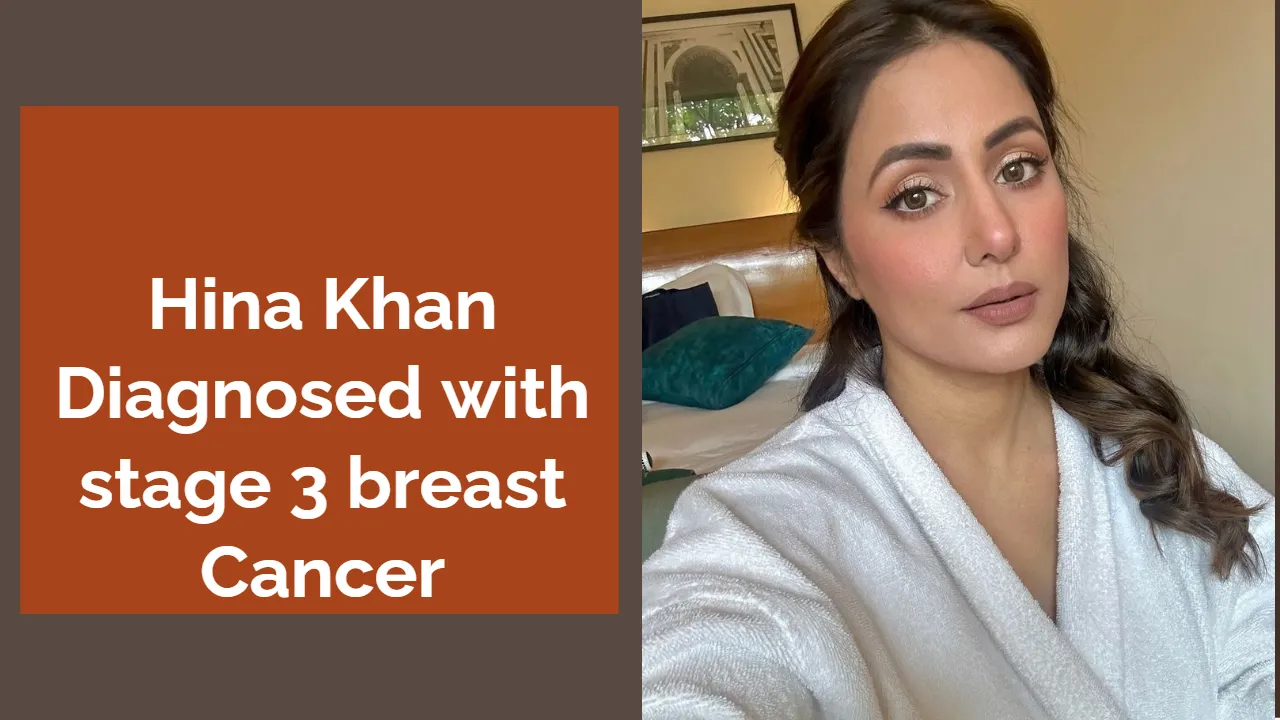Hina Khan Diagnoses Stage 3 Breast Cancer: A Journey Through Television and Film
Hina Khan is a renowned Indian actress who has made a significant impact in Hindi television and film. She gained widespread recognition for her roles in popular TV shows such as Akshara Singhania in Yeh Rishta Kya Kehlata Hai and Komolika Chaubey in Kasautii Zindagii Kay. Her filmography includes notable appearances in movies like Hacked (2020) and Lines (2021).
Understanding Stage 3 Breast Cancer: Symptoms, Survival, and Treatment in India
Breast cancer remains a major health concern for women globally, including in India. Early detection and timely treatment are critical in improving survival rates. This article aims to provide comprehensive information on stage 3 breast cancer, highlighting its symptoms, survival rates, and treatment options available in India.
What is breast cancer?
Breast cancer develops when cells in the breast grow uncontrollably, forming a tumor. Although it predominantly affects women, men can also be diagnosed with breast cancer. Understanding the stages of breast cancer is crucial for grasping the severity and prognosis of the disease.
Breast Cancer Stages
Breast cancer is classified into stages (0-IV) based on tumor size, the spread to nearby lymph nodes, and whether it has metastasized (spread) to distant organs.
Stage 3 Breast Cancer: Locally Advanced Disease
Stage 3 breast cancer is categorized as locally advanced, meaning the cancer has extended beyond the original tumor site but has not spread to distant organs. This stage is further divided into sub-stages IIIA, IIIB, and IIIC, each reflecting different degrees of lymph node involvement and tumor size.
Symptoms of Stage 3 Breast Cancer
Early recognition of breast cancer symptoms is essential for prompt diagnosis and treatment. Common signs of stage 3 breast cancer include:
- Changes in Breast Size or Shape: Noticeable increase or decrease in breast size, asymmetry, or alterations in the nipple’s appearance.
- Lump in the Breast or Underarm: A hard, painless lump distinct from the surrounding breast tissue.
- Skin Changes: Redness, swelling, dimpling (resembling an orange peel), or thickening of the breast skin.
- Nipple Discharge: Bloody or clear discharge from the nipple without squeezing.
- Swollen Lymph Nodes: Enlarged lymph nodes under the arm or near the collarbone.
Survival Rate for Stage 3 Breast Cancer
The 5-year relative survival rate for stage 3 breast cancer in India varies based on factors such as sub-stage, overall health, and access to timely, appropriate treatment. Advances in medical treatments have significantly improved survival rates in recent years.
Is Stage 3 Breast Cancer Curable?
While stage 3 breast cancer is considered advanced, it is treatable. With timely and appropriate treatment, many individuals can achieve long-term remission and lead healthy lives.
Treatment Options in India
Treatment for stage 3 breast cancer in India typically involves a multidisciplinary approach tailored to individual needs. Common treatment options include:
- Surgery: Mastectomy (removal of the entire breast) or breast-conserving surgery (lumpectomy) followed by radiation therapy.
- Radiation Therapy: Uses high-energy rays to destroy cancer cells.
- Chemotherapy: Utilizes drugs to kill cancer cells throughout the body.
- Hormone Therapy: Blocks or reduces hormones that fuel the growth of certain breast cancers.
- Targeted Therapy: Employs drugs that target specific proteins or genes involved in cancer cell growth.
- Immunotherapy: Helps the body’s immune system fight cancer cells.
Access to Quality Care in India
India has made significant strides in cancer care infrastructure and treatment options. Major cities now offer world-class cancer treatment facilities with experienced oncologists and advanced technologies. However, challenges remain in ensuring equitable access to quality care, especially in rural areas.
The Importance of Early Detection and Support
Early detection is vital in improving breast cancer outcomes. Regular breast self-exams, clinical breast exams, and mammograms are crucial for early identification of abnormalities. Additionally, support groups and counseling can provide emotional and practical assistance for individuals diagnosed with breast cancer and their families.
Reminder: This information is for general knowledge and should not be considered medical advice. If you or someone you know is experiencing symptoms of breast cancer, it is essential to consult a healthcare professional for proper diagnosis and treatment.



